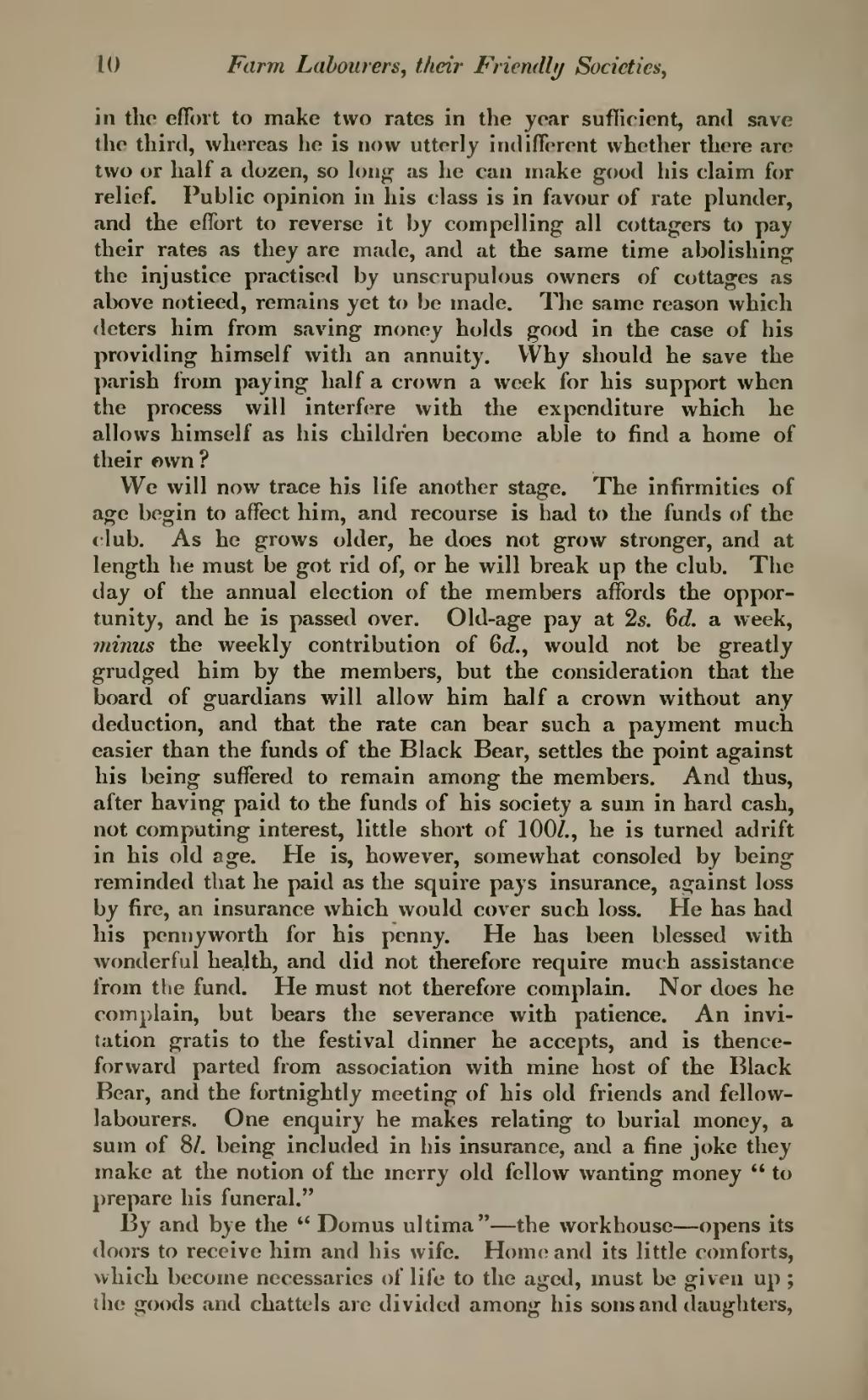in the effort to make two rates in the year sufficient, and save the third, whereas he is now utterly indifferent whether there are two or half a dozen, so long if as he can make good his claim for relief. Public opinion in his class is in favour of rate plunder, and the effort to reverse it by compelling all cottagers to pay their rates as they are made, and at the same time abolishing the injustice practised by unscrupulous owners of cottages as above noticed, remains yet to be made. The same reason which deters him from saving money holds good in the case of his providing himself with an annuity. Why should he save the parish from paying half a crown a week for his support when the process will interfere with the expenditure which he allows himself as his children become able to find a home of their own?
We will now trace his life another stage. The infirmities of age begin to affect him, and recourse is had to the funds of the club. As he grows older, he does not grow stronger, and at length he must be got rid of, or he will break up the club. The day of the annual election of the members affords the opportunity, and he is passed over. Old-age pay at 2s. 6d. a week, minus the weekly contribution of 6d., would not be greatly grudged him by the members, but the consideration that the board of guardians will allow him half a crown without any deduction, and that the rate can bear such a payment much easier than the funds of the Black Bear, settles the point against his being suffered to remain among the members. And thus, after having paid to the funds of his society a sum in hard cash, not computing interest, little short of 100l., he is turned adrift in his old age. He is, however, somewhat consoled by being reminded that he paid as the squire pays insurance, against loss by fire, an insurance which would cover such loss. He has had his pennyworth for his penny. He has been blessed with wonderful health, and did not therefore require much assistance from the fund. He must not therefore complain. Nor does he complain, but bears the severance with patience. An invitation gratis to the festival dinner he accepts, and is thence-forward parted from association with mine host of the Black Bear, and the fortnightly meeting of his old friends and fellow-labourers. One enquiry he makes relating to burial money, a sum of 8l. being included in his insurance, and a fine joke they make at the notion of the merry old fellow wanting money "to prepare his funeral."
By and bye the "Domus ultima"—the workhouse–opens its doors to receive him and his wife. Home and its little comforts, which become necessaries of life to the aged, must be given up; the goods and chattels are divided among his sons and daughters,
